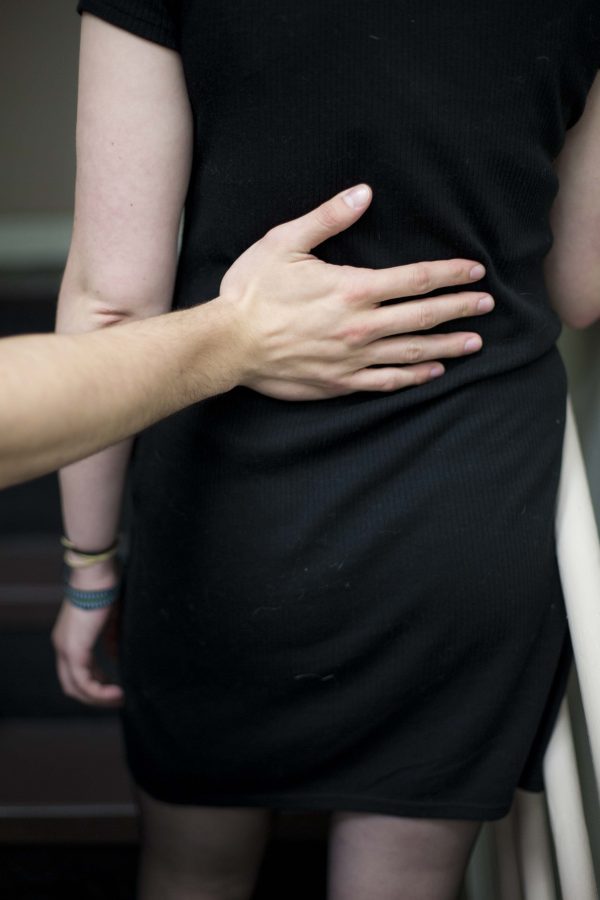University to Use Climate Survey Results to Decrease Sexual Misconduct
In a survey administered by the university in 2016, 1,218 students answered questions about NYU’s climate of sexual misconduct. According to the survey results, 52.7 percent of students did not notify anyone of their sexual misconduct experience.
February 28, 2017
The results of the National Campus Climate Survey assessing the prevalence of sexual misconduct at NYU — administered at the university’s New York, Abu Dhabi and Shanghai campuses — were shared with the NYU community via email by President Andrew Hamilton earlier today.
Hamilton’s email was recently presented to the University Senate by CAS Dean Gabrielle Star and Gallatin senior Josy Jablons, who is the co-chair of the Senate Ad-Hoc Committee. The email said that the results were shared with students because solving the problems related to sexual misconduct requires understanding of the predominance of these issues.
“In keeping with the important goal of increasing awareness and understanding of this national problem, the objective of this first study was to assess the climate at NYU in relation to sexual misconduct in order to build upon our existing programs and create a focused action plan,” Hamilton said in the email. “We also wanted to establish a baseline to measure change at NYU over time and to have data to assess risks by type of student in order to better target our programs and services.”
According to the survey summary, 1,218 students responded to an invitation to participate in 2016, which was sent to a stratified random sample of 2,593 students who are currently enrolled in undergraduate, graduate or pre-professional programs, aged 18 or older. The summary also said that the university intentionally oversampled students who self-identify as underrepresented racial minorities to ensure the results accurately reflected the student population.
In a statement to Washington Square News, Hamilton said that the safety and well-being of students are of the utmost importance to the university.
“We are committed to working hard to reduce the incidence of sexual misconduct on our campus,” Hamilton said. “The climate survey was an important project for us to undertake, because it gives us a clear-eyed understanding of the issue and will help guide our efforts so that they are most effective.”
Starr and Jablons spoke on behalf of the university and said that they have increased confidence that NYU’s education and awareness programs are reaching students and that bystander intervention programs are effective. However, they said that there are still improvements to be made.
“We also know we have more work to do to support students at the highest risk and to increase reportage,” Starr and Jablons said. “What matters are two key priorities: increasing the safety of our campus and ensuring that students find the resources to support mental and physical health and wellness, as well as academic progress, in the aftermath of any traumatic event.”
They said that the University Senate task force will be continually reviewing and recommending new steps as further progress is made.
“First, we are exploring the addition of sexual violence screening in our health services, to make sure students know the resources available to them and to make it easier for students to seek help,” Starr and Jablons said. “We will partner with experts in our own university to help reduce risk for the highest risk students. We will increase our capacity to train individuals in bystander intervention, as well.”
Jablons, who also serves as the president of the Students for Sexual Respect club on campus, said that as co-chair of the Senate Ad-Hoc Advisory Committee on Sexual Misconduct alongside Dean Starr, she has been assisting with the campus climate survey for nearly a year.
“I am glad to see the school doing this, as it is a meaningful and crucial step toward increased transparency regarding sexual violence on campus,” Jablons said. “Since the rates of reporting to public safety are low, NYU’s crime statistics aren’t an accurate source of information. Alternatively, the anonymous campus climate survey provides a clearer picture of the prevalence of sexual and dating violence in our community.”
She said the results also pertain to the SSR because it is helpful to know that many students find the resources for education at NYU around these issues adequate. Jablons said the club would like to see similar efforts from the university, and SSR will push NYU to further its prevention methods so that every student receives in-person, ongoing prevention education.
Starr also said that focusing on the individual is important when dealing with issues of sexual misconduct. In a statement to WSN, Starr said the university recognizes that even a single incident of sexual assault on campus is too many. She said the issue of sexual assault is a clear priority for NYU, and community members should all be concerned with addressing it.
“The survey has given us valuable insight into where things are working — bystander intervention, for example — and where we need to put concerted effort,” Starr said. “For example, reducing risks for LGBTQ students and students who live on campus, as well as increasing the use of support services so that students get the help they need.”
Starr believes sharing data about sexual misconduct on NYU’s campus is important because it both builds awareness of risk and the importance of sexual respect and can increase understanding of the impact of assault and misconduct in the community. She said as community members engage the community by sharing the data, they may also collectively do a better job of prevention and support.
Starr and Jablons said on behalf of the university that although the results are positive, there are always improvements that can be made to safety measures at NYU.
“The results show us what is working and what needs to improve, and we are targeting resources where we believe, based on the evidence, we can have the biggest impact,” Starr and Jablons said. “We can always do more, and will.”
Additional reporting by Natasha Roy. Email Jemima McEvoy at [email protected].
.




























































































































































